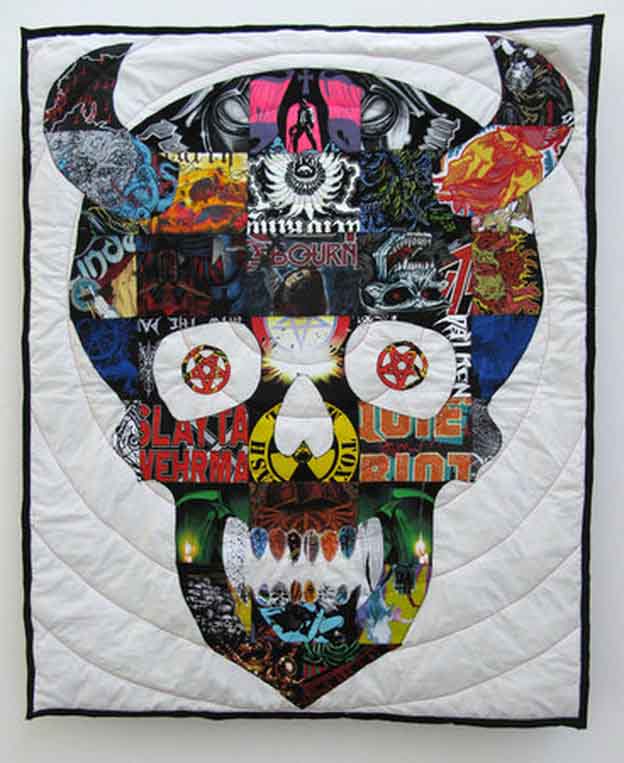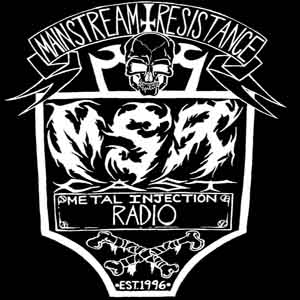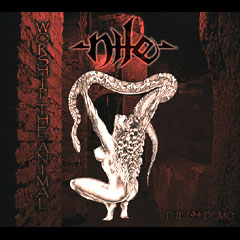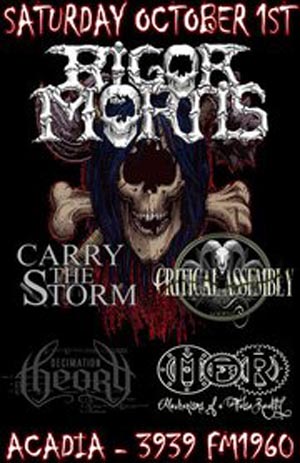Following up on the extreme success of their latest studio album release “Death…The Brutal Way” and its “Live Death Doom” DVD/Live-CD successor, Dutch Doom Death Metal legends ASPHYX are currently busy with the final recordings for their newest studio effort, programmatically entitled “Deathhammer”.
The band checked in with the following status report about the new album:
“By now, all the guitars, drums and bass tracks for the upcoming “Deathhammer” album are recorded. Drums were recorded in the classic Harrow Studio, known from the ASPHYX classics as “The Rack” and “Last One On Earth”. The guitars and bass were recorded in The Mörser Studio. In a few weeks the vocals will be recorded in the Harrow Studio as well and then Dan Swanö will do the album’s mixing and mastering, just as on “Death…The Brutal Way” and “Live Death Doom”.
“Deathhammer” promises to be a darkened successor of “Death…The Brutal Way”. Almost every band is praising their newest album to be heavier and more brutal than the previous one, but actually in this case it’s the harsh truth. “Deathhammer” is in every way heavier, doomier and darker. Maybe it’s because of the fact that most of the songs were written in late Autumn/Winter?! We do not know…but it’s easily our heaviest effort so far!”.
“Deathhammer” is scheduled to be released via Century Media Records in early 2012.
For the rest of this year, ASPHYX will be playing a string of quality shows in Europe, including an appearance at this weekend’s underground institution NRW Deathfest on Saturday, September 17th, 2011 at AJZ Bahndamm in Wermelskirchen, Germany. Additionally, ASPHYX have chose to perform two very special “full album setlist” concerts on October 15th at Metropool in Hengelo, The Netherlands (where the band will be playing their complete “Last One On Earth” album) and at this year’s Eindhoven Metal Meeting on December 16th at Effenaar in Eindhoven, The Netherlands (where the band will be playing their complete “The Rack” album for its 20th anniversary of release). Do not miss these truly special events…
Upcoming ASPHYX live shows in 2011:
17.09.2011 NRW Deathfest – Wermelskirchen (Germany)
23.09.2011 Vera – Groningen (The Netherlands)
24.09.2011 Salzmann Factory – Kassel (Germany)
01.10.2011 Skullcrushers – Dresden (Germany)
15.10.2011 Metropool – Hengelo (The Netherlands) * Special “Last One On Earth” show!
12.11.2011 Stromgitarrenfest Vol. 2 / H.O.F. 23 – Berlin (Germany)
10.12.2011 Madrid In The Dark Festival – Madrid (Spain)
16.12.2011 Eindhoven Metal Meeting – Eindhoven (The Netherlands) * Special 20 years “The Rack” show!
www.facebook.com/officialasphyx
www.asphyx.nl
 A San Francisco artist who goes by the name Ben Venom has come up with an unusual use for those old heavy metal shirts — he sews them into quilts.
A San Francisco artist who goes by the name Ben Venom has come up with an unusual use for those old heavy metal shirts — he sews them into quilts. Autonomy – Post Incubation Perios
Autonomy – Post Incubation Perios

 Rigor Mortis and four modern metal bands are going to tear up the outskirts of Houston, Texas on Saturday October 1 from 8 – 11 pm.
Rigor Mortis and four modern metal bands are going to tear up the outskirts of Houston, Texas on Saturday October 1 from 8 – 11 pm.
